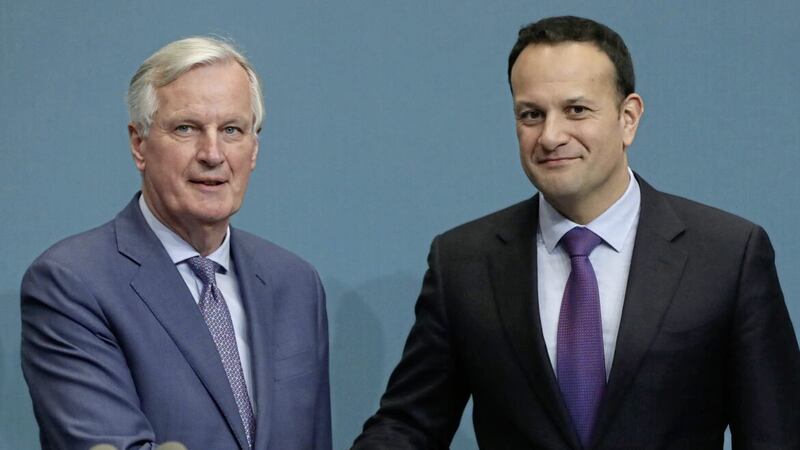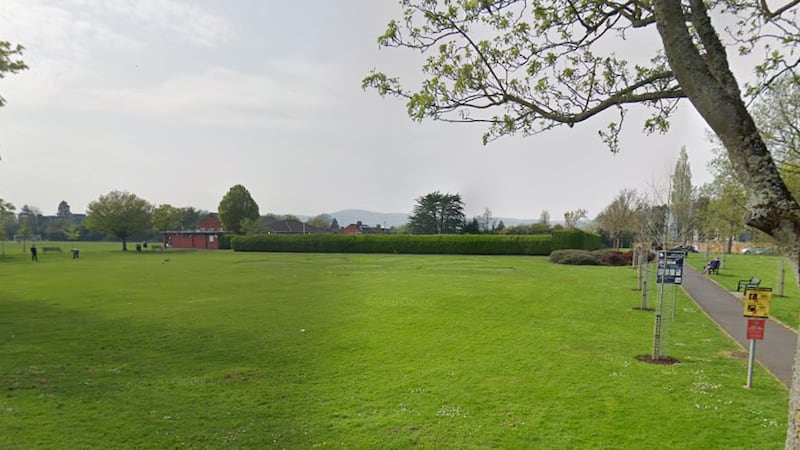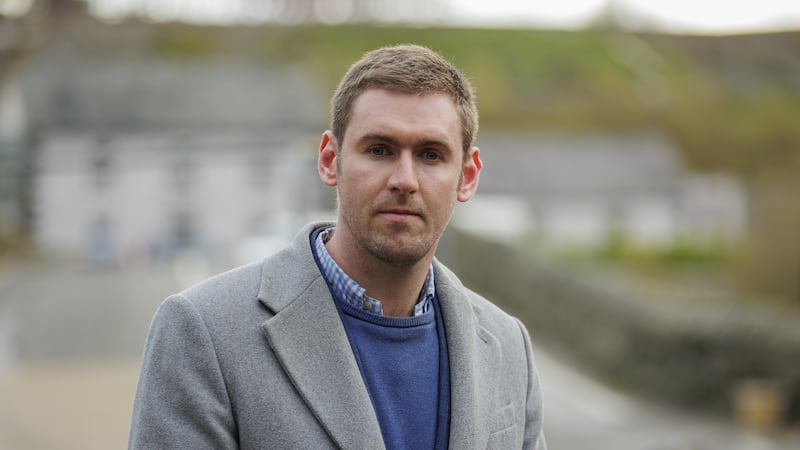CLAIMS that the Dublin government's opposition to border infrastructure hardened when Leo Varadkar became taoiseach in 2017 are rejected in a new book by an EU insider detailing the protracted protocol negotiations.
The book by a close aide to the EU’s chief negotiator Michel Barnier also reveals that former British prime minister Boris Johnson told Mr Varadkar just days before the bloc and UK struck a deal in October 2019 that the protocol would not only maintain the all-Ireland economy but "deepen" it.
'Inside the Deal: How the EU got Brexit Done' by Stefaan De Rynck is due to be published in the coming weeks.
The book counters a claim regularly made by unionists and Brexiteers that the Republic's position hardened when Mr Varadkar succeeded Enda Kenny in March 2017.
It suggests Mr Kenny, often cast as a moderate in the post-Brexit negotiations, ended discussions about a hi-tech solution to the border.
"Kenny decided it was time to freeze the technical work and give more time first to political leadership," the book says.
"It was not the case as has been suggested that an inexperienced Varadkar changed course from the more 'pragmatic Kenny'."
The author cites an occasion in 2017 when Mr Kenny took Mr Barnier aside at European Commission headquarters in Brussels and told him: "There was no reason to put pressure on the EU – why should Ireland have to solve the technical problems created by the political choice of Brexit?"
One of the book's other significant claims, according to RTÉ, is that Boris Johnson made an eleventh hour agreement that there would be customs declarations on goods exiting the north to Britain.
A matter of weeks later, the then Tory leader told business owners there would be no paperwork for west-east trade.
He had been asked by CIGA Healthcare owner Irwin Armstrong, now a cheerleader for the protocol, whether he could “go back to my company in the morning and tell my staff we will not be filling in any customs declarations for good leaving Northern Ireland to go to GB?”.
"You can," Mr Johnson responded.
"If somebody asks you to do that, tell them to ring up the prime minister and I will direct them to throw that form in the bin.
“You’ll be alright – there will be no forms, no checks, no barriers of any kind. You will have unfettered access."
The book also reveals fresh details about the so-called 'Walk in the Wirral' in October 2019 when Mr Johnson and Mr Varadkar ironed out difficulties in the negotiations.
According to Mr De Rynck, the then Tory leader confirmed to his Fine Gael counterpart that the all-island economy would be protected.
In July, Mr Johnson’s negotiator David Frost had told EU officials that the UK no longer believed the all-island economy had to be protected.
"Irish diplomats present in Liverpool informed Barnier’s team by phone of Johnson’s U-turn on the all-island economy," the book says, "since he told the taoiseach that the all-island economy would not just keep ‘functioning’ after Brexit, but also ‘deepen’.
"Varadkar had explicitly confirmed with Johnson that he could say this publicly."
A week after the Liverpool meeting, Mr Johnson and the EU concluded the Withdrawal Agreement, including the Northern Ireland Protocol, at an EU summit in Brussels.








